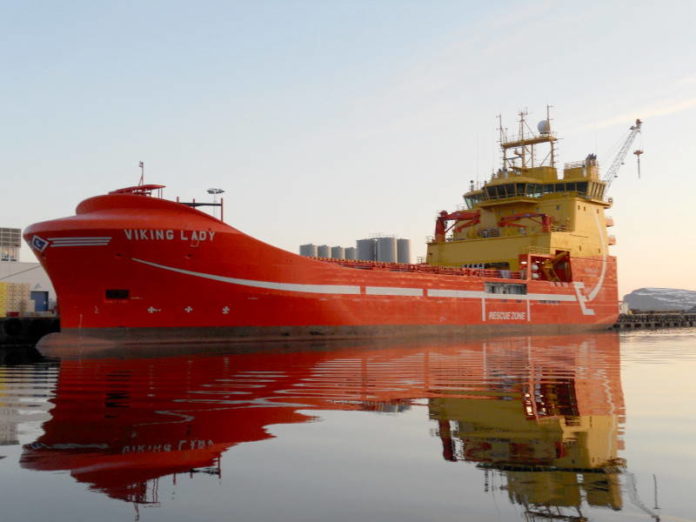
Corvus Energy is supplying the battery pack and battery management system for[ds_preview] the platform supply vessel »Viking Lady«, specially designed to safely service offshore installations in the harsh waters of the North Sea. The »Viking Lady« was the first commercial ship in the world to use a fuel cell specially adapted for marine use.
Following the success of the installation and demonstration of the fuel cell power pack on board, »Viking Lady« recently entered into a third project phase in which energy storage capability in the form of Corvus’ AT6500 lithium-polymer battery pack is being integrated in the power system.
The lithium-polymer battery is comprised of 6.5 kWh modules, has a capacity of 455 kWh, and is capable of delivering up to 4 MWh bursts over a short period of time. After looking at different options, the designer and system integrator of Wärtsilä’s »Viking Lady« selected Corvus’ battery pack and battery management system as the solution-of-choice to monitor all aspects of the system’s module, pack and array operations. »With her innovative fuel cell technology and extremely advanced systems integration, ›Viking Lady‹ required a reliable, robust and extremely energy dense energy storage solution,« said Bjørn Roger Haugen, Power Drive Specialist Ship Power Technology at Wärtsilä. »Corvus Energy’s battery packs and battery management system allows us to optimize the benefits of energy consumption in a true hybrid energy system.«
»Not only can our product perform on the same level as fuel driven propulsion systems, with this installation Corvus will prove it can successfully add to the bottom line of the commercial marine industry. We are pleased that our battery solution is being installed on this groundbreaking fuel cell and battery hybrid ship,« said Brent Perry, Corvus Energy’s CEO.
The project, also known as »FellowShip« – a series of joint industry R&D projects experimenting hybrid energy systems, comprising fuel cells, gas engines and batteries on board vessels and offshore platforms – points to a cleaner and greener future for shipping with a significant potential to reduce CO2 emissions (up to 50 %) and improve energy efficiency (up to 30 %) when compared to conventional power generators.


















